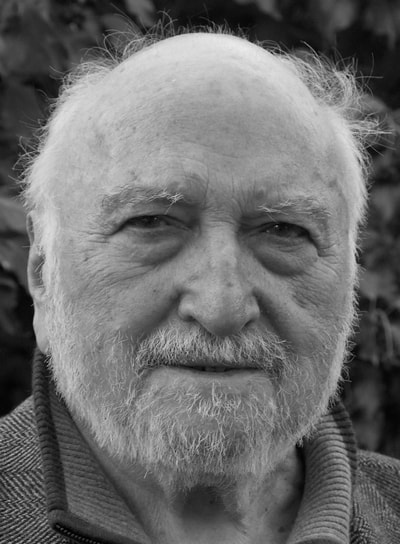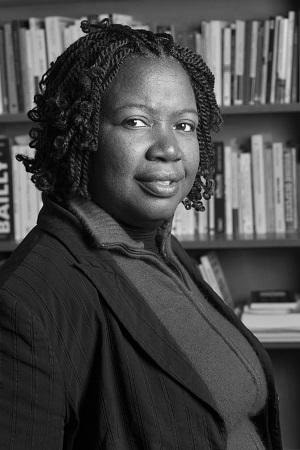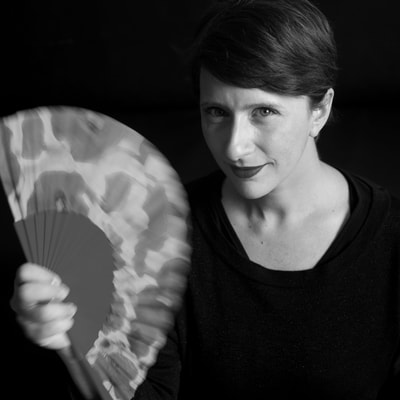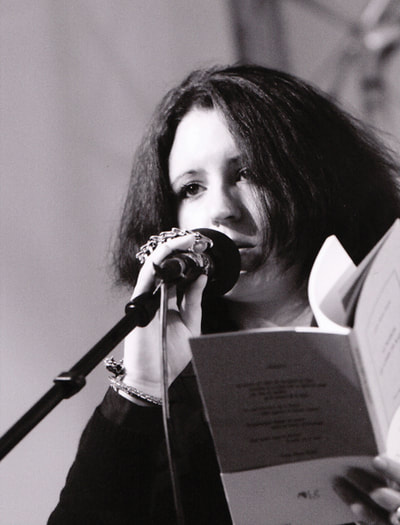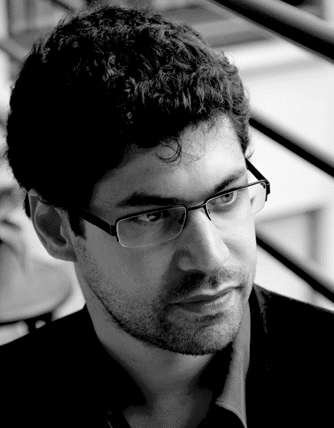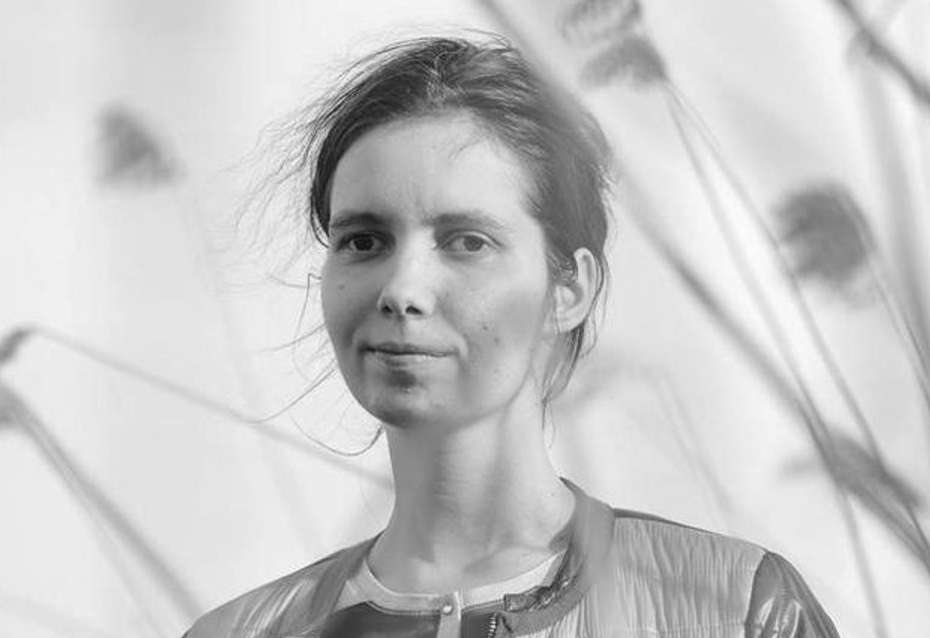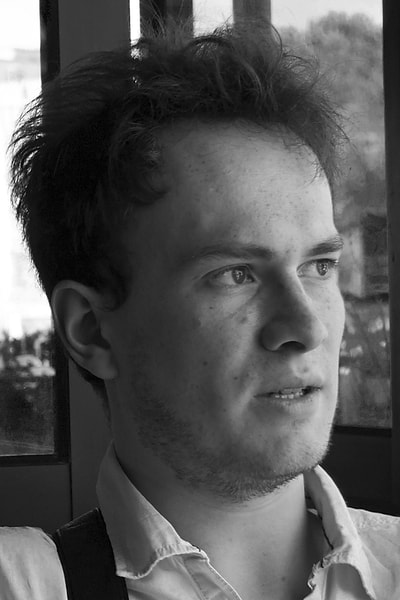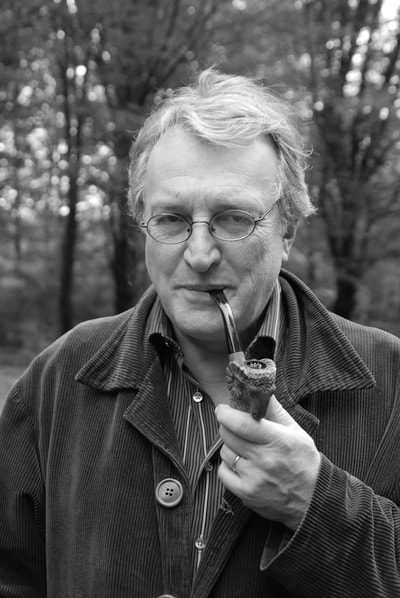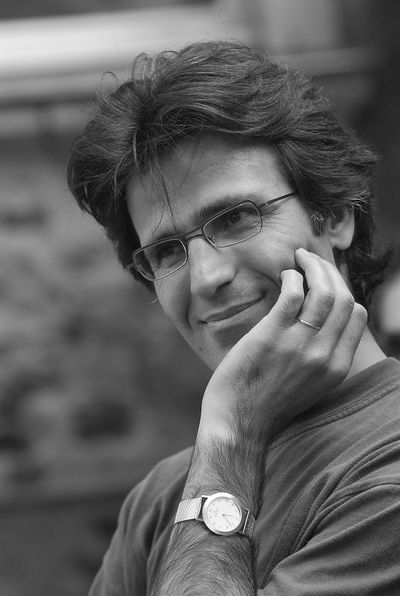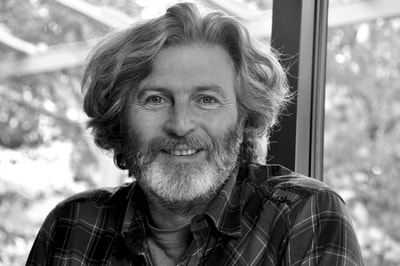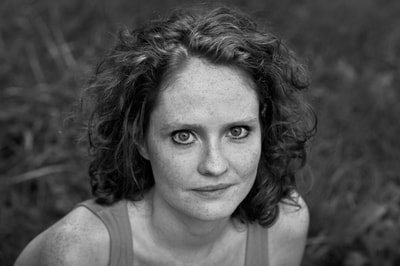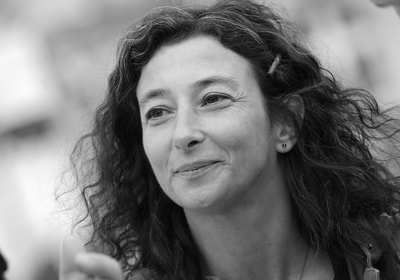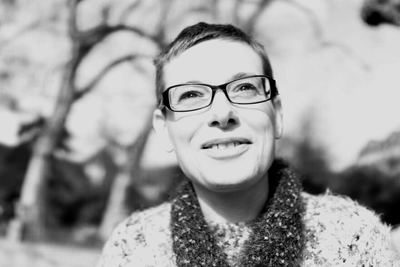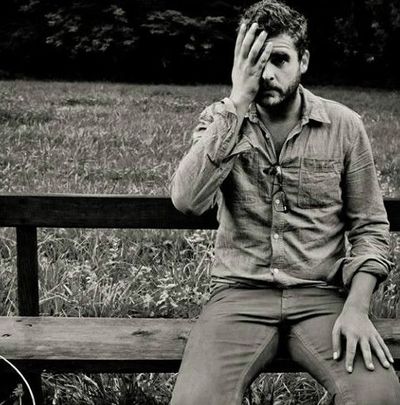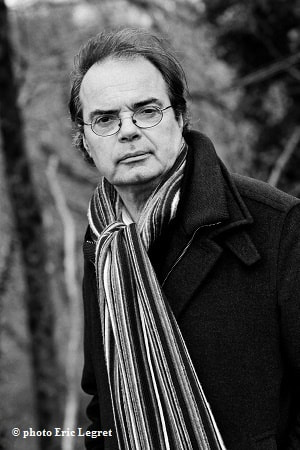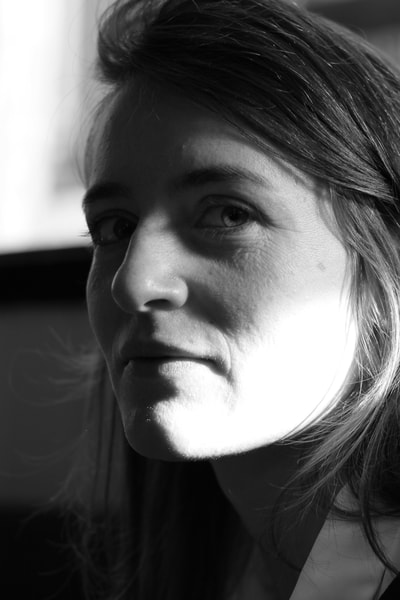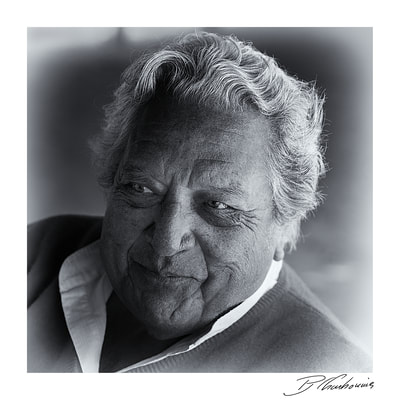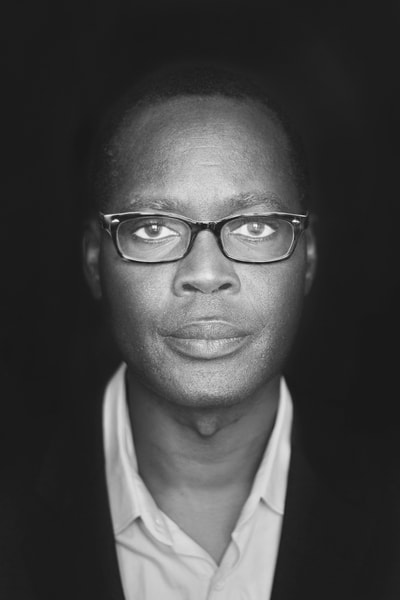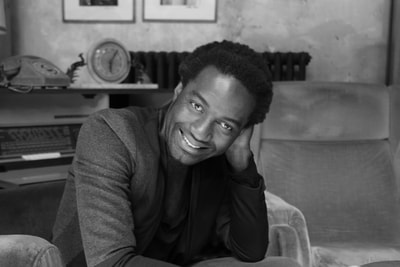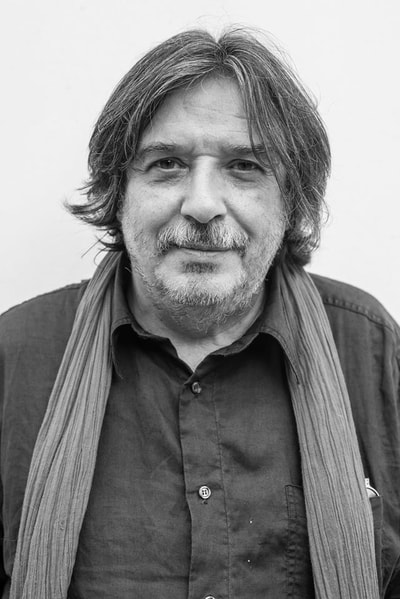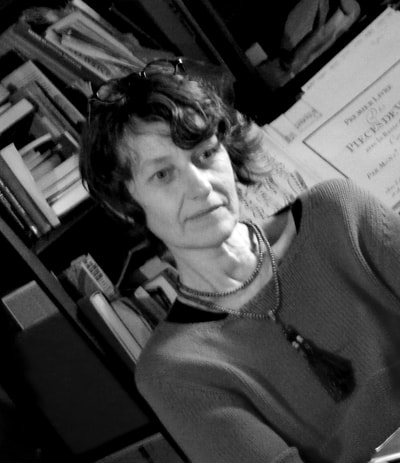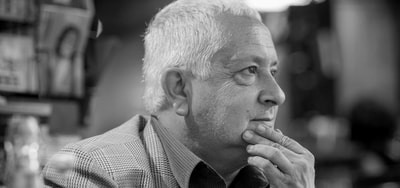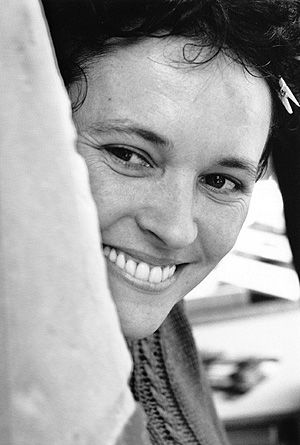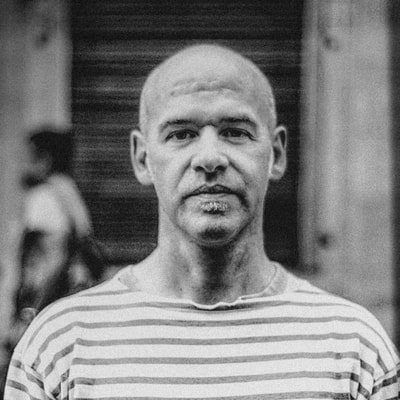Issue XXVIII November 2018
Poetry from France
edited by Aurélia Lassaque & Julie Nice
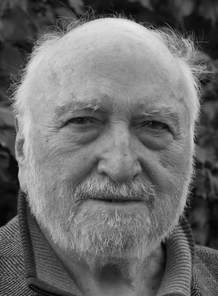 Frédéric Jacques Temple (Enchanting Poet) Frédéric Jacques Temple (Enchanting Poet)
THE RIVER
I recognized the river by the paths of long ago in trampling the swathes and the summer marjoram. At the bend of the hills (green and ashen) the Sorgues rebounded on the hairy rocks unleashing the echoes nesting in the willow grove on the banks. Fifty years of suns and showers slept in the undecipherable park ( always the bitter fragrance of box which haunts the unaltered flight of the water where gleams the somberness of the lightning trout). From the invisible crest of the trees, alders, robers, beeches, paralysed sequoias, ( alone have I grown old for not having stayed) flowed the murmuring anxiety of the beings awakened by the intruder : « He comes back, here he is, he dares infringe the silence of time ! » Thus murmur the cemeteries buried beneath thickets of brambles when the child returns towards the shades. ( translated by Philip Grover) Read More The life of Frédéric Jacques Temple is, so to speak, the purest image of the XXth century. He took part in many of its greatest and worst events, with an extraordinary sense of simplicity and humanity. He is a pioneer, an adventurer, a son, a father and a husband. The first time I met him was in 2013, when he was awarded the prestigious Prix Apollinaire. Last year, I asked the permission to visit him for my researches, and him and his wife Brigitte invited me at home. I will always remember the evening we spent together, the happiness that emanated from this place, the quietness and softness of the wind as we talked and kids dove into the swimming pool.
Frédéric Jacques Temple was born in 1921 in Montpellier, in the south of France, not far from the Mediterranean. In his childhood, which he describes in his prose and poetry, he used to go to the sea, he swam with dolphins - with which he “spoke a secret language, as old as the world is, born in those times when gods lived on earth” - , fished sharks, admired the multitude of birds among the trees. He discovered the limitless beauty of nature, before it was crushed by modernity and its own multitude of buildings and tourists. Reading Temple’s poems feels and sounds like opening a sensible encyclopedia. Stercorarius pomarinus, puffins, petrels, owls, cranes, kingfishers... The innumerable list of birds, in his poems, flying, chirping, tweeting and buzzing around him is, yet, a “terrible song of memory”; it is a lost Arcadia that reminds us of the fact that, in France and everywhere else, birds are disappearing, and skies are growing more and more silent. Through his words, and the hypnotizing amount of species - both flora and fauna - described, Frédéric Jacques Temple tries to save them, to carve them into the trunks that pages used to be. No rhymes in his poems, but the rhythm of these words, almost forgotten, neglected in some dictionary on a dusty shelf. Yet I saw a seven-year-old boy read these poems, and then discuss with the author about caracal caracal and the length of its ears… Is it in search of Arcadia that Temple travelled so many times ? He is an insatiable reader, and his childhood was crowded with Fenimore Cooper, Melville and Verne’s characters, Captain Ahab, Professor Aronnax, to whom he would “substitute” himself during his strolls, and whose existence he would never call into question. Temple visited, among other countries, Cuba, Marocco - where he worked as a journalist -, Russia, Brazil, Québec and the United States. He went there on the trail of “The American Poet”, saw Whitman’s house and waited for the osprey. He came back to France with American-Indian wisdoms and proverbs, and a new collection of poems, “The song of horseshoe crabs”, dedicated to this ancestor, the immemorial witness he met on a beach. Has limulus polyphemus ever landed in Arcadia ? Italy, from ashore, doubtlessly looked like Arcadia when, in 1944, Temple joined the Allied Forces and fought in Monte Cassino and on the road to San Romano. “One day, time stopped for me at the brink of battle and life. Since then, I have waited.” He was 23, and he lost most of his comrades there, and a part of his life. Because Frédéric Jacques Temple loves his neighbour as himself; and his neighbour Lawrence Durrell was his friend, in Occitania and in Greece. And so were Blaise Cendrars, Henry Miller, Richard Aldington, Alain Clément, Vincent Bioulès, Henk Breuker - with whom he created the review La Licorne (The Unicorn) -, Emmanuel Fillot, Robert Sabatier, Robert Marteau... In 1998, with his wife Brigitte, he went back to Italy, and climbed, against the wind and torrential rain, up a hill called Spazzavento - “sweeping wind” in Italian - because he wanted to visit a friend’s grave on the centenary of his birth. Two years later, Temple told the story of his epic ascent in a short book - published by Jacques Brémond -, in memory of this Italian officer who, in 1944 in Naples, invited him to visit his Caprese villa during his leave. Shortly after, in the newspaper, Temple recognized in the Italian dandy officer the author Curzio Malaparte. They sent each other letters and books, and met again in Paris. Malaparte died in 1957, struck down after decades of pain caused by toxic gas he inhaled while fighting for France during World War One. His major books, Kaputt and La pelle, are accounts of the horrors of war. Born shortly after World War One, Temple also felt its horror within his family and homeland. Nature and innocence would soon be swept by Hitler and modernity, just like horseshoe crabs are by the tide. Frédéric Jacques Temple is also a horseshoe crab. He has ten eyes, some through which he sees the end of the world and the cruelty of Man, and others with which he sees and memorises what is left, the beauties of the world, friendship, nature, love. Sight and writing combined, he gives us one of the purest expressions of contemporary poetry. He gives us hope, and the will to make it last, and ours. “ Death, the only immortal, I know that someday she will take me away. I insurrect, curse the lethal encounter, insult the hideous black beast, but do not waste life and the least drop of its honey” Julie Nice 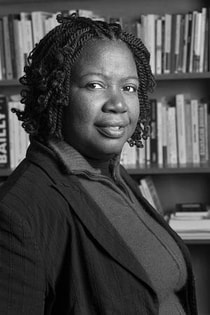 Tanella Boni (Editor's Choice) Tanella Boni (Editor's Choice)
and he recounted his life the joy
the gleam of his shell the gaping sound sailor seducer of seas and winds when he uses his words of laughter prince of sands in the midst of the feast even the table dreads the end of humanity at the edge of a fleeting life together this life even if a well of meaning clearly an ephemeral life close the door to the incense of other words without frontiers all tales told hominids have invented nothing new on Earth each word leading to the next is consolation for oneself alone when the boat of love pitches and keels over in the midst of the infinite solitude of the sea Read More |
It has been a great pleasure to collaborate with Julie Nice on this issue. Poetry is rarely at the heart of the dialogue between India and France, which makes all the more valuable the publication of this work between the pages of Enchanting Verses.
The edition of this issue raised several questions about the definition of contemporary French poetry. French is spoken and written in many countries around the world. We could have designed a selection of the key voices of contemporary francophone poetry gathering poets from France but also from Quebec, the Caribbean, the Indian Ocean, etc. But our choice was not that one. Just as French is written and spoken in many countries of the world, France has a great diversity of regional languages. Thus we could have established a selection of voices of poets from France, composing in French as well as in the languages of France. But these two approaches alone constitute complete issues. Therefore, in this first issue of Enchanting Verses dedicated to contemporary French poetry, we have chosen to bring together major and emerging voices of poets whose common denominator is not only the language but also the territory. Because France is also a land of refuge and a chosen land. In this issue, we gathered poets born in France and poets born abroad who live in France and write in French. Our selection also takes care of the diversity of genders and generations. It seemed to us essential, alongside some of the most emblematic figures of contemporary French poetry, to give place here to the emergent voices of the contemporary French poetic scene, a dynamic and prolific scene. Nimrod, born in Koyom, Chad, poet, novelist and essayist is the author of a major literary work. In 2017, the prestigious NRF/Poetry Gallimard collection published a personal anthology tracing a writing route that continues to mark the French literary landscape with a deep imprint; Yvon Le Men, militant poet, cosmopolitan writer born in Brittany, a stone's throw from the ocean, is another figurehead of French poetry who, since his first collection (Life, 1974), devotes his own life to writing and stage production of his poems; Seyhmus Dagtekin is a poet and novelist born in Harun, a Kurdish village of Turkey. Each new collection of Seyhmus Dagtekin is a revolution, his poetic work is the work of a man who keeps his eyes wide open "It is at least the breath of origins that carry the words of Seyhmus Dagtekin […] What is as close as what is furthest is found in the same stream of poetic verses, from the most intimate to the most universal "(Jean-Claude Leroy, Mediapart, 06/13/2015); Bruno Doucey gives himself heart and soul to poetry as a major poetry publisher (Editions Bruno Doucey) and poet. He expresses his insubordination and revolt in chiseled verses that always know how to reach their target. The lyricism that runs through his poems gives all its strength to his voice. This peculiar poetic breath goes through both his essays and novels and rised him as a key figure in the contemporary French literary scene; Claude Ber delivers a word in resistance. "The texts of Claude Ber maintain a relationship both fusional and distanced at their time, they fight against the tyrannies of ideology and fanaticism without occupying any dominant position. " (Jean-Luc Despax, Nu(e) n°51, 2012); Jean Portante left his native Luxembourg to live in France between long stays in Latin America. Novelist, essayist, playwright, translator, poet, Jean Portante is the author of a considerable work translated all over the world. Born into an Italian family, educated in German then in French and English, he adopts the metaphor of the whale - which has the shape of a fish but keeps its lung connects to earth - to designate his language in poetry. A language that has the shape of French but breathes in Italian ...; Tanella Boni, philosopher by training, novelist and poet, born in Abidjan, Ivory Coast, is a key figure of contemporary French poetry in France and on the African continent. As a humanist poet, Tanella Boni is able to tell the daily life of women both poetically and theoretically as in her Lettre aux générations futures (Letter to Future Generations, UNESCO, 1999); Luis Mizon, born in Valparaiso in Chile, joined France after the coup of 1974. Journalist, novelist and painter, his poetry is marked by exile and crossed by a lyrical breath that blurs the border between dream and reality; Thierry Renard, has long shared his life between writing, drama, and cultural action. He is also involved in the poetry scene as a poetry publisher (La passe du vent). Thierry Renard is a "Lover of love, passionate actor of "the world scene", eager of the peppered flavors of the revolt, and still daring, fiery, fraternal: such is Thierry Renard. In fluid stanzas that sound clear, he celebrates the "hard job of living", "the unique face of the unique woman" and "the poem which is a rope where to hang." (Jean-Louis Roux, 111 poètes d’aujourd’hui en Rhône-Alpes); Francis Combes, recognized journalist and publisher (Le temps des Cerise ) is a “poet of public utility". His poems are as powerful when they express pure love as when they denounce the disaster and become a political act; for Deborah Heissler "writing is an act of accuracy, a play of nuances and harmonics that are wary of ungovernable excess" (Dominique Sorrento, The Scriptorium, 11/14/2009). Alongside them are poets jugglers of sounds, rhythms and meanings, poets of spoken, screamed, blown poetry such as Valérie Rouzeau who appropriates, shapes and reinvents the language “Utterly unacademic, Rouzeau’s poetry draws deep on a tradition of popular poetry in France that includes such major figures as Apollinaire, Queneau, Desnos and Prévert and which is unafraid to experiment with the pun, the neologism, and even with a kind of child’s babil. This is something Rouzeau has made especially her own, and in her later poetry […] it has become a finely modulated musical resource” (Stephen Romer, Poetry International Web); or Vincent Tholomé, performer, who travels to stages around the world in solo, duets and trios, accompanied by musicians, video artists, singers ; and Marc Alexandre Oho Bambé -whose first novel published in March 2018 has been welcomed with great enthusiasm by the critics- who declines talents with as much skill as genius. Also known as “Capitaine Alexandre”, he sings and slames his lyrics on stages around the world; Albane Gellé, poet and horse rider, combines her two passions as an equilibrist with the same subtlety, the same sensitivity to nature and breath. The highly refined writing of each of her books, is a dazzling sight; Samantha Barendson has multiple origins (Argentinian, French and Italian), writes in three languages and says: "I like to declaim, shout, scream or sing on stage, I am sometimes a little actress, a little frustrated not to be a tango singer "(Margutte, 03/08/2014); Linda Maria Baros, born in Bucarest, Romania, was the laureate of the prestigious Apollinaire Prize in 2007, Lionel Ray describes her as "an extraordinary poet" whose "audacious masterpiece of daring, surprises the reader as it is unpredictable, dreamy and sharp at the same time" ; Stéphane Bataillon is a poet and journalist. Bataillon's work focuses on short poetic forms, nano-literature, and experiments in digital writing. He aims at a simple and intentional lyric poetry – whether written, visual or sound poetry –, passed on through our time's networks. His first poetry collection published by Éditions Bruno Doucey in 2010 untitle Où nos ombres s’épousent (Where our shadows marry) has been hailed as one of the poetic revelations of the year; Irene Gayraud, polyglot, researcher in comparative literature, translator, writes poems and mirco-narratives. Irene Gayraud writing is the work of a real goldsmith. "What is narrated, with a sense of detail accomplished says the fantastic that touches the real, the harshness of the real as a nightmare, a dream that the characters really explore, a veiled joy of living too "(Luc Vidal); Stéphane Korvin’s work consists of a photographical and pictorial exploration of projected spaces of the body, melancholic figures, and lands where life can be found winding within. Each of his books recounts the story of an experience, an isolation, taking on the accidental form of his writing; the poetic writing of Blandine Merle is of a rare refinement "faith is, like writing, a way of "being connected with humanity ". "One feeds the other," she says. "In my poems, I try to name the life that lives, as Baudelaire's poem says, with its joys and sorrows. » (La Croix, 12/04/2014); Lou Raoul, whose writing oscillates between narrative prose and poetry, leads projects of live performance and visual arts. Her poetry mixes the Breton language with the French language with the timeless texture of a tale. In this pages you will also discover our “Enchanting Poet Feature” Frederic Jacques Temple introduced by Julie Nice. We sincerely thank the poets, translators, editors and photographers whose participation and generosity have enabled us to bring together the material of this issue. Aurélia Lassaque, Poet |
